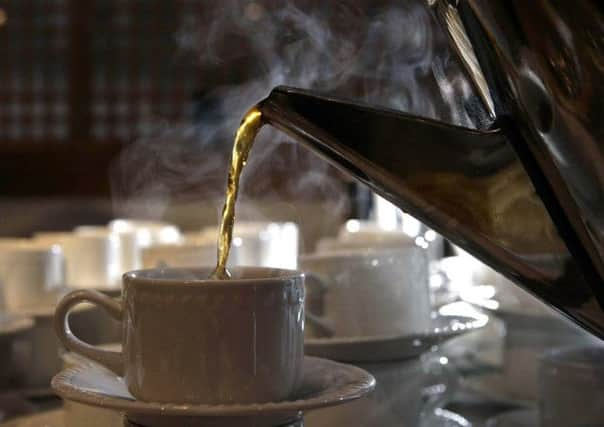Jane Bradley: Where would we be without Rosie Lea?


Trendy alternatives such as peppermint, or a rhubarb rooibos, are not tea. They might be pleasant enough drinks but there should be a Trade Descriptions Act prohibiting them from sharing the same name as a good old cup of Rosie Lea.
I have a friend – a yoga teacher and a lapsed vegetarian – who doesn’t ever consume caffeine except on special occasions, when the effects are entertaining to say the very least.
Advertisement
Hide AdAdvertisement
Hide AdOn a recent visit to her house, she offered me a cup of tea. “Oooh yes, lovely,” I said, in that British way we have of seemingly getting excited about the most mundane of drinks. “Milk and some sugar if you’ve got some please, but really don’t worry if you haven’t.”
I have recently learned to accept that my liking for a small teaspoon of sugar in my cuppa is these days regarded as an unfashionable habit by many, who look at me as if they’ve just discovered a dinosaur fossil.
They then spend the next half hour poking reluctantly about their cupboards in search of “that sugar that the builders left when they did the kitchen”.
My friend was confused. “I don’t think any of the tea I’ve got would really taste right with milk,” she said.
“Then it’s not tea, is it?!” I wanted to scream.
But I didn’t. I politely accepted a cup of apple and ginger flavoured hot water and drank it like a good girl.
A report out this week from that most British of brands, Churchill – you can imagine the sagely nodding northern dog is a fan of a good brew – found that the concept of the afternoon tea is on the up.
The study, released as the nation celebrates Afternoon Tea Week, found that three in five young adults between the ages of 18 and 34 have recently gone for, or are planning to go for afternoon tea, while the older generation surprisingly aren’t quite such fans, with only 44 per cent of adults over the age of 55 saying they had planned a recent afternoon tea excursion.
The report found the British have spent £567 million in the past five years on tea-making paraphenalia such as teapots and posh china cups with garden roses painted on them.
Advertisement
Hide AdAdvertisement
Hide AdWhile you could – if you really wanted to – drink the perfumed water of fruit and herbal teas in these, it is a truth not worth debating that the decadence of afternoon tea goes best with a breakfast tea; or perhaps a nice Earl Grey – or even a good old smoky lapsang souchong if you’re feeling fancy.
The Great British Bake Off, which can be credited with fuelling the national interest in mini cakes and fancies (all evenly baked, of course, with no soggy bottoms), embodies the very ethos of a proper cup of tea.
You can’t imagine Mary Berry supping a nettle and roseleaf infusion, can you?
But in other countries, the beverage we see as our national drink has other properties.
The Japanese regard tea drinking as a ritualistic ceremony – more revered for the customs surrounding it than the drink itself.
In Romania, tea is considered a cure-all for any ailment. Think you might have a stomach ulcer? Your doctor may well prescribe camomile tea, in huge quantities.
In China, similar. A large part of Chinese medicine depends on being able to consume the herbs by boiling them up in hot water and drinking them. Some may be black teas, but they are not usually consumed with milk.
On reflection, it may well be us who are out of step – the rest of the world does not consider what we call tea to be tea.
We need a new name for it.
Advertisement
Hide AdAdvertisement
Hide AdPerhaps “tea tea” would be a good option. It would underline the superiority of the drink over the watery cups of nothing masquerading as a proper cuppa.
I’m off to make myself a nice cup of tea tea and add plenty of milk and sugar. I might even drink it out of a china cup. And there won’t be an infusion or herb in sight.